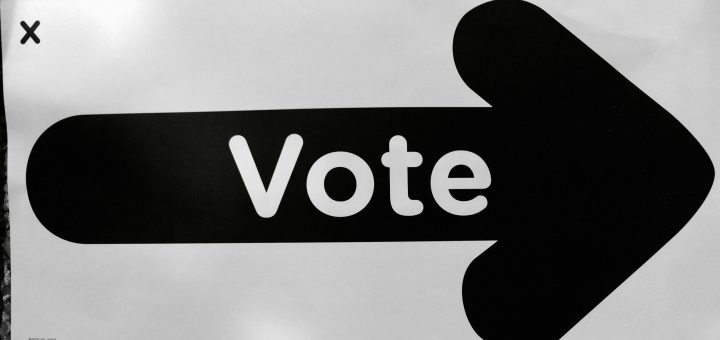One Million Potential New Voters: Frank v Canada (Attorney General)

Introduction
As the country prepares for a federal election later this year, approximately one million additional citizens will have the right to cast special ballots. In Frank v Canada (Attorney General) 2019 SCC 1 [Frank], the Supreme Court of Canada [“SCC” or “the Court”] struck down provisions of the Canada Elections Act SC 2000, c 9 [the Act] which excluded Canadian citizens who have lived abroad for five or more years from voting. Prior to this ruling, a Canadian non-resident citizen was, with a few exceptions, not entitled to vote in Canadian federal elections, regardless of considerations such as whether they paid taxes, they had an intent to return to Canada, their connection to the country, or their interest in the domestic affairs. In Frank, the majority adopts a bright-line approach to section 3 of the Canadian Charter of Rights and Freedoms [Charter], extending the franchise to non-resident citizens and upholding the importance of this core democratic right.
Facts and Procedural History
The appellants in this case were two Canadian citizens who had lived abroad for over five years, but both continued to have strong ties to Canada. Dr. Gillian Frank lived in Canada until age 21, and subsequently moved to the United States to pursue graduate studies at Brown University. His wife is Canadian, and his immediate family continues to live in Canada. He hopes to return to Canada, but has yet to find an academic position in the country. Like Dr. Frank, Mr. Jamie Duong was born in Canada and moved to the United States to attend Cornell University. After graduating, he received a full-time job on the Cornell campus and he currently lives in Fairfax, Virginia. His family members continue to live in Montreal, and he visits then frequently. He expects to inherit family property in the future, and would return to Canada if he found suitable employment.
Section 127 of the Act allows for some non-resident citizens to vote through the special ballot process. Eligibility for the special ballot is outlined in section 11. Unless a citizen falls into one of the enumerated exceptions (some examples include: being a member of the Canadian Forces, being an employee of the Canadian government or an international organization, or living with an individual who falls into one of these categories), the five-year rule prohibits non-resident Canadian citizens from voting by special ballot. Both appellants were barred from voting in the 2011 federal election. They challenged the provisions of the Act which stated that non-residents may vote only if they have lived outside of Canada for less than five consecutive years as an unjustified violation of their section 3 voting rights under the Charter.
At the Ontario Superior Court of Justice, the Attorney General of Canada [AGC] argued that the objective of the section 3 limitations was to preserve the integrity of the electoral system and ensure fairness to voters living in Canada (Frank, para 18). Justice Penny held that the residence rule was indeed an infringement of section 3 of the Charter, and that the AGC’s arguments for justification failed at each stage of the Oakes test. The Ontario Court of Appeal, however, overturned Justice Penny’s ruling, despite the AGC conceding a section 3 breach at this stage of the appeal (Frank, para 19). Here the AGC reframed the objectives of the impugned provisions, arguing that the objective was grounded in the idea that the “social contract” requires citizens to be subjectively and objectively connected to Canada in order to vote (Frank, para 20). The social contract theory originates in 18th century philosophy, notably in the work of Jean-Jacques Rousseau. In this context, it was argued that the social contract would be eroded if citizens who are not subject to Canadian laws were nevertheless able to vote. Chief Justice Strathy accepted this as a pressing and substantial objective under the first stage of the section 1 Oakes test, citing the reasoning from the SCC’s decision in Sauvé v Canada (Chief Electoral Officer), 2002 SCC 68 [Sauvé #2]. Justice Laskin dissented, finding first, that the “social contract” as a pressing and substantial objective was a new argument raised on appeal; second, that the social contract did not accurately reflect Parliament’s intent at the time the law was enacted; and third, that even if this were the accepted objective, it did not meet the threshold to qualify as pressing and substantial (Frank, para 22).
The Majority
Writing for the majority, Chief Justice Wagner held that since the AGC had conceded that the impugned provisions breach section 3 of the Charter, the central issue on appeal is whether the breach is justified under section 1 (Frank, para 23). Given the importance of context when discussing the limitations to Charter rights, Chief Justice Wagner noted that both the Court’s jurisprudence and the fact that section 3 is exempt from the notwithstanding clause indicated that voting rights are to be given a broad and purposive interpretation, with any limitation subject to “a stringent justification standard” (Frank, para 25). Since the purpose of section 3 is to ensure that all citizens can participate in the Canadian electoral process, the provision is integral to the functioning and flourishing of Canada as a democracy. Referring to the Court’s ruling in Sauvé #2, the Chief Justice reiterated that “a government that restricted the franchise to a select group would effectively weaken the legitimacy of the country’s democratic system and undermine its own claim to power” (Frank, para 27). The stakes of this appeal, therefore, are high.
The role of residence strikes to the heart of the appeal in Frank. The Chief Justice wrote that far from being an internal limit on the right to vote, residence is an “organizing mechanism” rather than “an essential requirement of the Charter right to vote” (Frank, para 28). Residence underpins the Westminster constituency-based model of electoral representation. However, Chief Justice Wagner noted that the fact that the Act contains exceptions to the residence rule implies that residence cannot be an essential component of the right (Frank, para 30). Given the need to provide section 3 with a broad and purposive interpretation, residence cannot constitute an internal limit. If the government wishes to justify a limit imposed on section 3, it must raise this limitation not as an internal limit to section 3, but in the section 1 justification analysis.
Moving the Oakes analysis, the majority first identified the legislative objective, and then proceeded to an examination of whether the impugned provisions are rationally connected to the objective, minimally impairing, and proportionate to the objective. The majority found that the limitation fails at the minimal impairment stage of the section 1 analysis. Prior to this finding, the majority dedicated a significant portion of its decision to discussing the legislative objective of the impugned provisions. Identifying the objective is particularly difficult in this appeal given the AGC’s reframing at the Court of Appeal, which shifted from being the preservation of fairness in the electoral system to the “social contract” objective. The majority at the Supreme Court firmly rejected the “social contract” objective, noting that it “superficially and vaguely evokes a political philosophy which is ill-suited to withstand the rigours of the s. 1 justification analysis” (Frank, para 49). The basis for accepting this theory lies in what the majority characterized as a misinterpretation of the Court’s ruling in Sauvé #2, a case in which the Court held that denying prisoners the right to vote was unconstitutional. It is difficult, the majority argued, to reconcile the finding in Sauvé #2 that despite breaking the law (a significant violation of the social contract), criminals retain their voting rights, and the argument that citizens living abroad for more than five years have opted out of the social contract and given up their voting rights. Since a violation of the social contract via criminal activity was held not to be grounds for denying a citizen his or her voting rights, it makes little sense that the lesser “offence” of living abroad would result in disenfranchisement.
Returning to the AGC’s original stated legislative objective of having the five-year rule in order to maintain the integrity and fairness of the Canadian electoral system, the majority accepted that this was a pressing and substantial objective. While Chief Justice Wagner observed that the AGC did not produce any evidence to support a rational connection between the duration of a citizen’s time abroad and electoral fairness, the measure fails more definitely at the minimal impairment stage. This point of the justification analysis is somewhat muddled: if indeed the AGC produced no evidence to support a rational connection, it is not clear why the justification analysis does not fail at this stage.
At the minimal impairment stage, the AGC argued that the legislation is minimally impairing because a citizen must be subject to the laws he or she participates in shaping through the act of voting (Frank, para 70). Non-resident citizens are not subject to Canadian laws. The majority rejected this argument for three reasons. First, not all resident citizens are affected by all legislation. Second, non-resident citizens are affected by Canadian legislation insofar as they visit Canada frequently, have family here, and are actually subject to Canadian laws that are extraterritorial (ex: tax law, criminal law, government benefits) (Frank, para 72). Third, the logic of the AGC’s argument suggests that a Canadian citizen should immediately lose the right to vote upon leaving the country because they are no longer subject to the laws of Canadian the moment they reside elsewhere.
The AGC also failed to demonstrate that the salutary benefits of the impugned provisions outweigh the deleterious effects on the appellants. No evidence was produced to support the assertion that the fairness of the electoral system is compromised if the one million non-resident citizens living abroad for more than five years were entitled to vote. As the benefits are unclear, the deleterious effects to non-resident citizens are grave: they are disenfranchised and can only regain their voting rights by returning to Canada. Chief Justice Wagner notes, “in no other context do we tolerate the idea that a person can earn his or her Charter rights back through voluntary conduct” (Frank, para 81). The majority firmly concluded that the impugned provisions are not justified under section 1.
Differing opinions
While there is not enough space to discuss the split of this decision, it is important to briefly note the differing opinions presented in Frank. In his short concurring reasons, Justice Rowe noted that while he agrees with the majority in the outcome, he would have residence remain an important part of the electoral system (Frank, para 88). Justice Rowe argued that residence remains a foundational part of a democratic system, and more than just an “organizing mechanism” (Frank, para 90). Just because it is not mentioned in the language of section 3 does not prohibit it from acting as some kind of inherent limit, subject to justification under section 1.
In a lengthy dissent, Justices Côté and Brown disputed—amongst other things—the majority’s approach to the limitation analysis. In response, the majority characterized this opposition as being based in semantics rather than law. The dissent argued that section 3 is a positive right, and as such, is subject to Parliament’s discretion to shape and define the internal limitations (Frank, para 113). Since some limitations on voting rights are accepted (age being the primary remaining limitation), the dissent argues that internal limits to the scope of the right are not ipso facto infringements. This leads to the dissent’s next objection to the majority: Justices Côté and Brown argue that the majority conflates limitations to the scope of a Charter right with infringements or breaches of that right. Turning to the language of section 1, the dissent notes that “a reasonable limit does not justify an infringement, but is inherent in the right itself, shaping the right’s outer boundaries” (Frank, para 120). An infringement occurs when the limitation on a right is unjustified. Following the dissent’s logic, however, any infringement could not be justified under section 1. This does not correspond with the Court’s previous jurisprudence where legislation that infringes fundamental freedoms has been upheld under the Oakes analysis (for example, a breach of freedom of religion upheld in Alberta v Hutterian Brethren of Wilson Colony, 2009 SCC 37). While the dissent raised an interesting academic point in Frank, it does not hold up to the significance of the rights at stake in this appeal nor the Court’s own jurisprudence.
Concluding Thoughts
In Frank, the majority adopts a bright-line approach to section 3. Given Canada’s history of progressive enfranchisement, to disallow a group of Canadian citizens who want to vote based on residence is regressive. When the discussion of section 3 descends into a granular discussion of when or when not to allow non-residents to vote, the principle underlying voting rights—that is, the facilitation of participation in the democratic process—is eroded. Absent concrete statistical evidence, it is purely speculative to state that long-term non-residents are less connected and less concerned with domestic affairs than others. To follow this argument to its extreme, if connection to community and domestic affairs becomes the criteria for voting, then the franchise of other transient populations could come under attack (students, seasonal workers, etc).
The majority’s ruling in Frank may open the door to other challenges to limitations to voting rights. Most notably, there is a growing movement in Canada to lower the voting age from 18 to 16. In 2018, Stéphane Perrault, the acting chief electoral officer, observed that lowering the voting age would potentially improve voter turnout. While Perrault noted that this issue is ultimately one for Parliament to debate and change, Frank suggests that the Wagner Court will uphold voting rights as paramount to Canadian democracy, finding limitations unconstitutional where evidence does not support the exclusion. So, in addition to granting non-resident citizens the right to vote in federal elections, Frank may have paved the way for further extension of the franchise to young voters. Stay tuned.







Join the conversation